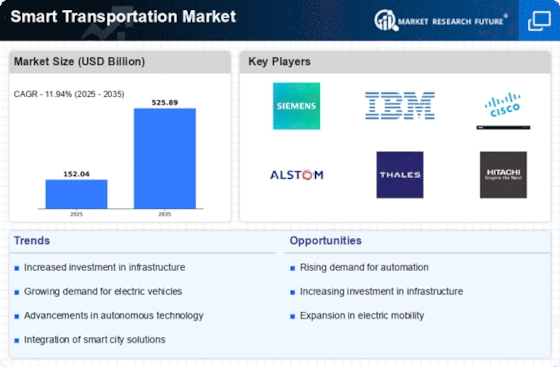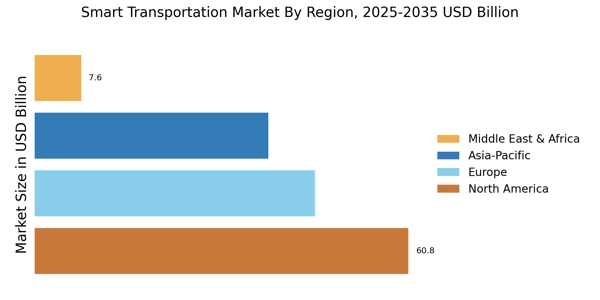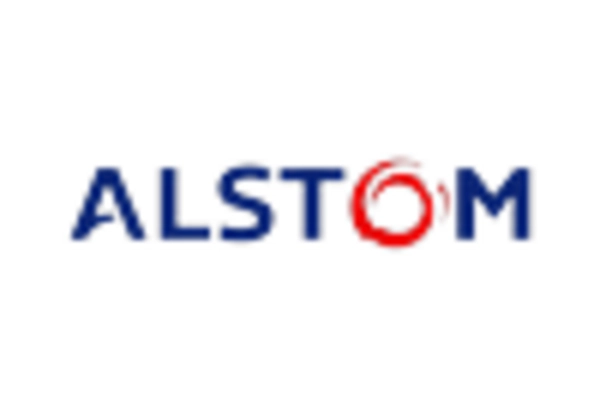Government Initiatives and Funding
Government initiatives play a pivotal role in shaping the Smart Transportation Market. Various countries are investing heavily in smart infrastructure projects, aiming to modernize transportation systems. For example, funding programs for smart traffic management systems and electric vehicle infrastructure are becoming increasingly common. In 2025, it is estimated that public sector investments in smart transportation could exceed 100 billion dollars, reflecting a strong commitment to enhancing urban mobility. These initiatives not only stimulate market growth but also encourage private sector participation, thereby fostering innovation within the Smart Transportation Market.
Advancements in IoT and Connectivity
The Smart Transportation Market is experiencing a surge in advancements related to the Internet of Things (IoT) and connectivity solutions. These technologies facilitate real-time data exchange between vehicles, infrastructure, and users, enhancing operational efficiency and safety. For instance, the integration of IoT devices in transportation systems allows for better traffic management and reduced congestion. According to recent data, the IoT in transportation is projected to grow at a compound annual growth rate of over 25%, indicating a robust demand for smart solutions. This trend not only improves user experience but also contributes to the overall effectiveness of the Smart Transportation Market.
Rising Urbanization and Population Growth
The Smart Transportation Market is significantly influenced by rising urbanization and population growth. As urban areas expand, the demand for efficient transportation solutions intensifies. It is projected that by 2030, nearly 60% of the world's population will reside in urban centers, leading to increased traffic congestion and pollution. This scenario necessitates the adoption of smart transportation solutions to manage urban mobility effectively. The market is likely to see a surge in demand for smart public transit systems, ride-sharing platforms, and autonomous vehicles, all of which are integral to the Smart Transportation Market.
Environmental Concerns and Sustainability Goals
Environmental concerns are driving the Smart Transportation Market towards sustainable practices. As awareness of climate change and pollution rises, there is a growing emphasis on reducing carbon footprints in transportation. Many cities are setting ambitious sustainability goals, such as achieving net-zero emissions by 2050. This shift is prompting investments in electric vehicles, public transit enhancements, and smart traffic management systems that prioritize eco-friendly solutions. The market for electric vehicles alone is expected to reach over 800 billion dollars by 2027, underscoring the potential for growth within the Smart Transportation Market.
Technological Innovations in Autonomous Vehicles
Technological innovations in autonomous vehicles are reshaping the Smart Transportation Market. The development of self-driving technology is not only enhancing safety but also improving traffic flow and reducing congestion. Companies are investing heavily in research and development to bring fully autonomous vehicles to market. By 2025, it is anticipated that the autonomous vehicle market could be valued at over 60 billion dollars, indicating a strong trend towards automation in transportation. This evolution is likely to transform urban mobility, making it a critical driver for the Smart Transportation Market.
















